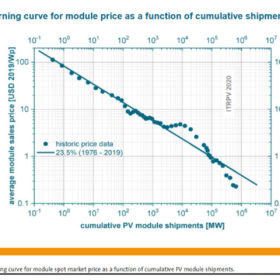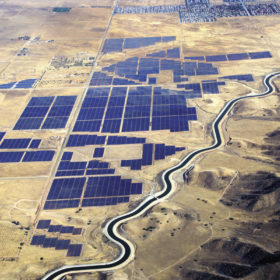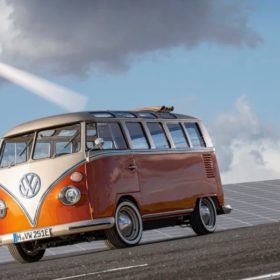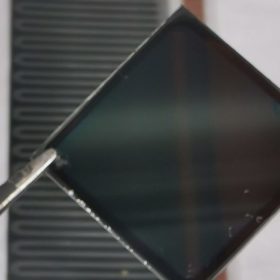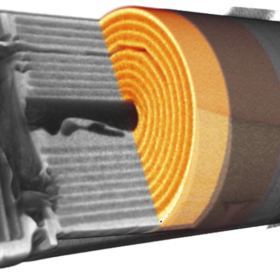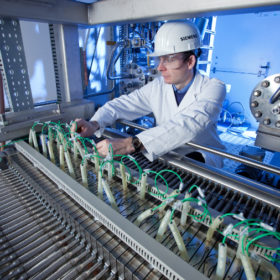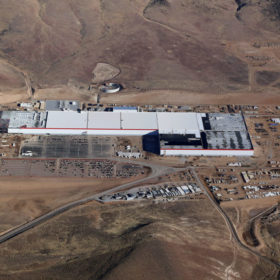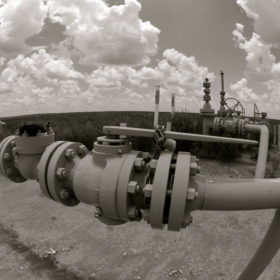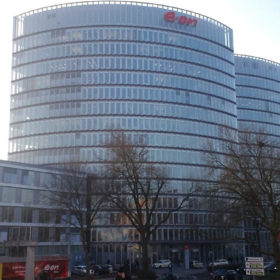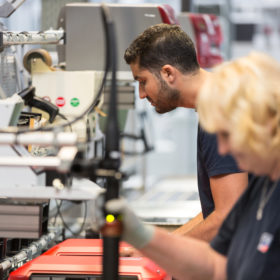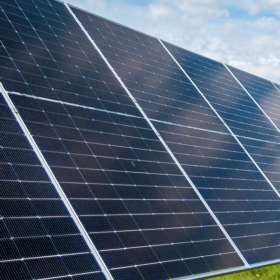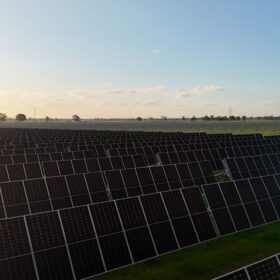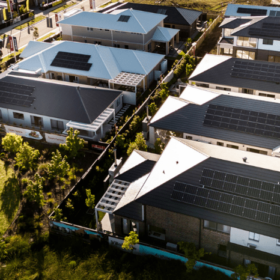Solar costs set to continue falling according to ITRPV roadmap
The 11th edition of the German document which tracks solar price falls and efficiency improvements has considered the role bigger wafers are playing in cost reduction.
JinkoSolar says US authorities see no violation of Hanwha Q-Cells patent
The patentability of Korean company Hanwha’s technology is being examined by a U.S. commission, according to Jinko. The Chinese manufacturer said it expects a final decision by December.
Smooth sailing, Volkswagen launches electric Kombi
Volkswagen Commercial Vehicles has unveiled the e-Bulli, a concept blend of the classic 1966 Bulli Kombi with 2020 electric vehicle driving.
International consortium claims 25% efficiency for flexible CIGS solar cell
Researchers led by Belgian institute imec claim to have achieved the result with a 1cm² flexible thin-film cell intended for building-integrated PV application. The result tops the 24.6% efficiency the consortium announced in September 2018. The cell’s developers are now aiming for 30%.
The inner workings of a lithium battery
An international group of scientists has developed a comprehensive method to track the microscopic processes at work in lithium batteries. Employing a ‘virtual unrolling’ model developed for ancient manuscripts too sensitive to be opened, the group peeked inside the layers of a commercial battery to gain a better understanding of the processes at work and the degradation mechanisms affecting them. Their findings, the group says, could provide a benchmark for battery characterization.
Green hydrogen to reach cost parity by 2030
Recent analysis from Wood Mackenzie predicts green hydrogen, produced primarily by solar electrolysis, will reach cost parity in Australia, Germany and Japan by 2030.
Tesla to build first European gigafactory in Germany
Elon Musk has promised a fab near Berlin that will help create up to 10,000 new jobs. Tesla wants to build the facility near the city’s controversial new BER airport.
‘The world has no chance of beating climate change if natural gas is part of the mix’
A report by Germany’s Energy Watch Group thinktank has said we would be better off sticking to coal and oil than switching to gas because emissions of methane, the most potent greenhouse gas, caused by gas extraction render any related carbon savings irrelevant.
EU approves Eon’s bid to take over Innogy
It took a while, but now the energy giants can finalize the mega deal. Rival energy companies have criticized approval of the deal amid fears Eon could dominate the German market.
SMA: We can’t be credible if we’re not sustainable
Credibility comes not just from offering products that generate clean electricity, but also from the way in which those products are manufactured, says SMA Solar Technology CEO Jürgen Reinert. Here, transparency and sustainability are key. That’s why one of the world’s largest PV inverter producers has partnered with pv magazine’s UP sustainability initiative. In the following Q&A, Reinert lays out what SMA is doing to step UP its green game.
